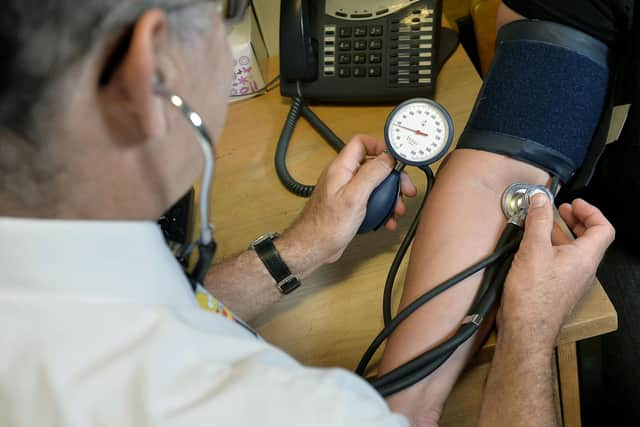More than one in 20 Doncaster residents in poor health
and live on Freeview channel 276
The data shows wide disparities in health across England and Wales, with some areas having over three times more people in bad health than others.
Health think tank the Nuffield Trust said the postcode lottery of health tracks socio-economic deprivation, and called on the Government to address disparities in healthcare, provision and overall health guidance.
Advertisement
Hide AdAdvertisement
Hide AdOffice for National Statistics figures show 6.9 per cent of residents in Doncaster said they were in "bad or very bad" general health in the 2021 census.


Nationally, 5.4 per cent of people responded to the census saying they were in bad or very bad health.
This rose to 5.9 per cent in Yorkshire and The Humber.
The Nuffield Trust said people living in certain areas fair much worse than others, and that the improvement in health across the country has not been enjoyed uniformly.
Sally Gainsbury, senior fellow at the think tank, highlighted the impact socio-economic factors had on people's health.
Advertisement
Hide AdAdvertisement
Hide AdShe said: "The role of socio-economic inequalities was often overlooked in health inequalities policy in the decade up until the pandemic. NHS England needs to follow through with their new focus on economic deprivation, as well as other, often related, drivers of health inequalities such as racial discrimination and social exclusion.
"We look forward to the Government giving these issues the attention they deserve in the long-delayed white paper on health inequalities."
There were also regional disparities in the number of unpaid carers across the country, the figures show.
In London and the South East, 4% of the population said they provided at least 20 hours of unpaid care per week. At the other end of the scale, this figure rose to 5.8% in Wales.
Advertisement
Hide AdAdvertisement
Hide AdIn Doncaster, 5.6 per cent of the population said they provided high levels of unpaid care.
The data also shows 9.5 per cent of Doncaster residents were classed as disabled in 2021.
By the ONS ranking of health levels – which takes into account poor health, disability and unpaid care – Doncaster ranks 280th of England and Wales's 331 local authority areas.
Comment Guidelines
National World encourages reader discussion on our stories. User feedback, insights and back-and-forth exchanges add a rich layer of context to reporting. Please review our Community Guidelines before commenting.